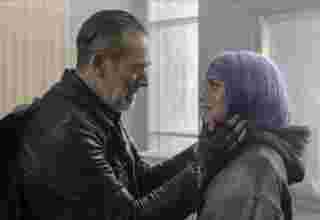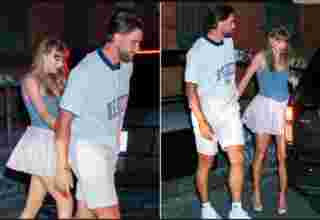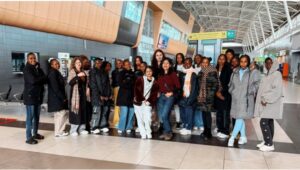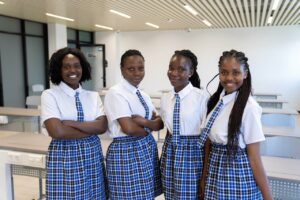
By Joseph Hudak, Rolling Stone Magazine, Thu, February 8, 2024
Tracy Chapman may keep a remarkably low profile, but she doesn’t live in a vacuum. The singer-songwriter was well aware of the success that Luke Combs’ cover of her song “Fast Car” was having last year. After it won two big awards at the Country Music Association Awards in November, she decided to call him.
It was a private conversation, just Chapman and Combs on the line for about 30 minutes, but it helped plant the seeds for one of the all-time best collaborative performances in Grammy history. On Feb. 4, the reclusive 59-year-old folk singer and the gregarious 33-year-old country star performed “Fast Car” together onstage at the Crypto.com Arena in Los Angeles. Just five days before, the two songwriters had met in person for the first time.
But according to interviews with reps for both artists, the Recording Academy, Sony Music Nashville, and Grammy producers, even then — with Chapman, Combs, and a band practicing “Fast Car” in a rehearsal studio in L.A. — it seemed hard to believe that the televised performance was actually happening.
They had every reason to wonder. Chapman hadn’t given a concert in 15 years. Her last live TV performance was in 2015 on The Late Show With David Letterman (she also sent in a pre-taped performance to Seth Meyers during the 2020 election run-up). And she’d declined all interview requests about the 2023 resurgence of “Fast Car,” a song first released in 1988. When “Fast Car” won the CMA for Song of the Year, making Chapman the first Black songwriter to win the award, she sent brief remarks to be read onstage. Even for this story, she deferred to her friend Matthew Rankin — an SVP at Nonesuch Records who first worked with Chapman at her longtime label, Elektra — to communicate.
“It was a long process, but it was definitely our dream,” Grammys executive producer Raj Kapoor says of securing Chapman’s appearance on the show. Working alongside executive producer Patrick Menton, they first hatched the idea of a “Fast Car” duet last May, but tracking down Chapman, who has no publicist and maintains an under-the-radar existence in San Francisco, wasn’t going to be easy.
As it turns out, Combs’ publicist, Carla Sacks, had a two-decade relationship with Rankin, and she helped connect the Grammy producers with Team Tracy. In the summer of 2023, they called Rankin to gauge Chapman’s interest in a possible return to the Grammy stage, 35 years after she won Best New Artist.
“No one really knew how to reach her, and it was just, like, pure magic, that I was in the know,” Sacks says. “I knew the doorbell to ring. And quite frankly, I think that made it very helpful to not be reaching out as a stranger and to be able to open the line of communication.”
By the time producers connected with Chapman, Combs’ version of “Fast Car” was on its way to spending five consecutive weeks at Number One on Billboard’s Country Airplay chart, was weeks away from topping the Hot Country Songs survey, and was hovering at Number Two on the all-genre Hot 100. It was an undisputed crossover juggernaut, and it would earn Combs a Grammy nomination for Best Country Solo Performance when nominees were announced in November.
Menton says Chapman’s team expressed immediate interest during that initial call, but he and Kapoor weren’t looking for a hard answer yet. “I said to Raj before we got on, ‘Let’s not do this like any other call.’ In fact, don’t give us an answer,” he says. “We asked Matthew: ‘Take this back to Tracy, let her live in this space, and let her think about this creatively and what it could be. And when you’re ready, come back to us.’”
Shortly after the new year, the producers got the confirmation they were hoping for: Chapman was in. “Fast Car,” the duet, was a go. “It felt like a long yes,” Kapoor says. “It never felt like a no or a maybe. They said, ‘We agree; let’s take our time and walk through this. And let’s make sure this is what we all want it to be.’”
Rankin says having that time to ruminate on the decision was key.
“When Tracy and I first discussed this opportunity, we realized it represented a moment of confluence, coming 35 years to the month since Tracy first performed ‘Fast Car’ at the Grammys, and following a year of such success for Luke with her song,” he says.
Chris Kappy, Combs’ longtime manager — who first recorded his client singing “Fast Car” in a hotel room in Rome, Georgia, back in 2015 to post on the then-aspiring country singer’s Vine account — said Combs was keen to do the Grammys performance with Chapman from the get-go. “But it’s such a big ask, and such a pipe dream, that we really didn’t think it was going to happen,” Kappy tells Rolling Stone.
Kappy says that when Combs learned that Chapman was on board, he asked that she have full creative control of the performance, despite it being billed by the Grammys as an appearance by Combs in an attempt to keep Chapman’s cameo a surprise. “Luke wanted to give Tracy every opportunity to shine,” Kappy says. “He said, ‘This is your song, and this is our opportunity to be a part of it.’”
According to Rankin, Chapman wanted to use specific musicians in the band, including drummer Denny Fongheiser and bassist Larry Klein, who played on the original recording of “Fast Car.” She also chose her longtime band members Larry Campbell, on fiddle, and guitarist Joe Gore. Kappy says she asked Combs if the utility player in his group, Kurt Ozan, would handle pedal steel. With the musicians set, Chapman and Combs began plotting rehearsals.
Kapoor and Menton say having adequate time to practice the song was one of Chapman’s most important requests. “The one thing that was really mentioned was that there was enough time to rehearse, for both artists to come together and have enough time to explore, to play through it,” Kapoor says. “There’s a lot of different things on our show — sets, production, visuals — but ultimately, this performance was about the music and the song.”
On Jan. 31, Chapman, Combs, and the band convened at SIR studio in Los Angeles to work up an arrangement. But the rehearsal was pivotal for another reason: Three months after their first phone call, the two songwriters would finally be in the same room together.
“The first day of rehearsals last week was itself a significant and emotional moment. It was the first time Tracy and Luke had met in person, and the first time in many years Tracy had seen some of these players,” Rankin says. “The musicians were supported by key people behind the scenes — including David Kershenbaum, who produced Tracy’s debut album — and, together, the collective experience and talent present in that room created a unique and beautiful new version of this beloved song.”
According to Kappy, Chapman and Combs spent 20 minutes catching up and talking about music before they started their first run-through of “Fast Car.” Chapman led the rehearsals: two hours on Wednesday, four on Thursday.
“She had a vision, and she asked Luke his thoughts. Then they just kept running through it and running through it,” Kappy says. “It was a fun way to watch two artists create the moment that we were going to have all together on the Grammys.”
Chapman decided that she’d play guitar and begin the performance, with her handling the odd verses and Combs the evens. Then they’d come together on the choruses, with Chapman taking the very end of the song. “It was really beautiful that she got to start and finish the song,” Kappy says.
They also decided that they’d perform Chapman’s version — the original, folky reading of “Fast Car,” as opposed to Combs’ more polished and amplified interpretation that fans have heard on the radio. That required Combs to sing it in a lower key. He had no objections.
“All of this was done to honor the amazing woman, songwriter, and artist that she is,” Kappy says. “The entire opportunity for us to even be on a stage with Tracy Chapman is what this was all about.”
When the artists took the stage in front of millions on Sunday night, Chapman was dressed in a custom Prada shirt designed especially for her. (Through Rankin, she gives props to Howard Gee, owner of the store AB Fits in San Francisco, for selecting and fitting her jeans.) As he typically does at awards shows, Combs eschewed his usual onstage everyman attire of baseball hat and fishing shirt for a sharp suit.
As the song’s famous guitar intro kicked off, it was impossible to initially tell who was onstage. The camera focused only on the hands playing the guitar, before slowly revealing Chapman — with a broad grin. Combs was off at some distance to her left. That was to give each artist their own moment, Kapoor says, and also to capture the reactions as the other was singing. Says Menton, “Watching Luke smile at Tracy and sing every single lyric, the way that was shot by [director]Hamish Hamilton was so special.”
Rankin says you only have to look at the interactions between the performers and the expressions of those in the audience to see the impact the collaboration had.
“On Sunday night, the roar from the audience as Tracy and Luke were revealed onstage proved how powerful this moment was, as did the tears in the eyes of countless people around us,” Rankin says. “Ultimately, the performance speaks for itself, especially the interaction between Tracy and Luke and their expressions, which tells you all you need to know about the way they were feeling.”
When the song was finished, Chapman and Combs left their marks to come together and hug. It was the emotional pinnacle of a performance that few thought would ever happen.
“The performance was breathtaking and radiated pure happiness from both artists,” says Randy Goodman, chairman and CEO of Sony Music Nashville, Combs’ label. “It was a full-circle moment for Luke and the perfect culmination to an amazing story.”
“We knew we were working towards something rare and special,” Rankin says, “but the performance was everything we hoped it would be and more, and the subsequent response has been incredible, exceeding our expectations in so many ways.”
After the onstage embrace, Chapman returned to her dressing room and went home the following day, back to her life in San Francisco. As for future appearances, we’ll just have to wait and wonder. And maybe that mystique — a rarity in the age of show-and-tell-everything social media — is what made the Grammysperformance so special.
“Sunday night was the culmination of long and very careful planning, in addition to successful teamwork,” Rankin says. He also credits one other quality shown by everyone who worked on the performance: “the ability to keep a secret.”






